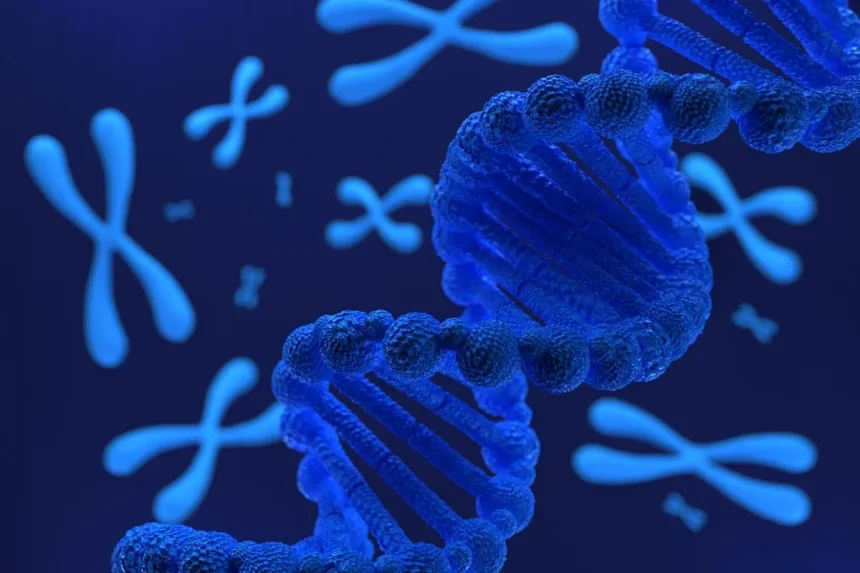Introduction
Genes are the fundamental units of heredity that carry instructions for the development, functioning, growth, and reproduction of all living organisms. They play a crucial role in determining physical characteristics, health conditions, and even behavioral tendencies. Recent advancements in genetics have shed light on how genes influence human behavior, providing a deeper understanding of the complex interplay between nature and nurture. This article explores how genes affect human behavior and traits, highlighting the significant impact of genetic factors on our daily lives.
What Are Genes?
Genes are segments of DNA that encode specific instructions for producing proteins, which perform a vast array of functions in the body. Each individual inherits two copies of each gene, one from each parent, resulting in a unique genetic makeup that influences various aspects of their physical and behavioral traits. While all humans share about 99.9% of their genetic code, the small 0.1% difference accounts for the vast diversity in appearance, abilities, and behavioral tendencies.
How Genes Influence Human Behavior
The relationship between genes and human behavior is complex, as behavior is influenced by both genetic and environmental factors. Studies have shown that certain behaviors, such as temperament, intelligence, and susceptibility to mental health disorders, have a genetic component. However, it is essential to note that genes do not act in isolation; they interact with environmental factors to shape behavior.
- Genetic Influence on Personality Traits
Personality traits, such as extraversion, neuroticism, openness, agreeableness, and conscientiousness, are influenced by genetic factors. Twin studies have shown that identical twins, who share 100% of their genes, often exhibit similar personality traits, even when raised apart. Specific genes, such as the dopamine receptor gene (DRD4) and serotonin transporter gene (5-HTTLPR), have been associated with traits like risk-taking, impulsivity, and emotional regulation.
- Genes and Intelligence
Intelligence is another area where genes play a significant role. Research suggests that genetic factors contribute to about 50-80% of the variation in intelligence among individuals. Several genes involved in brain development, such as CHRM2 and IGF2R, have been linked to cognitive abilities. However, environmental factors, including education, socioeconomic status, and nutrition, also significantly impact intellectual development.
- Genetic Factors in Mental Health Disorders
Genes significantly influence the susceptibility to mental health disorders such as depression, anxiety, schizophrenia, and bipolar disorder. For example, variations in the serotonin transporter gene (SLC6A4) are associated with an increased risk of depression. Similarly, the COMT gene, which affects dopamine levels in the brain, has been linked to schizophrenia and other psychiatric conditions.
- Behavioral Tendencies and Addiction
Genes can predispose individuals to addictive behaviors. Genetic variations in the DRD2 and OPRM1 genes, which affect the brain’s reward pathways, have been associated with substance abuse and addictive behaviors. While genetic predisposition does not guarantee addiction, it increases the likelihood when combined with environmental triggers such as stress, peer pressure, and availability of substances.
The Interaction of Genes and Environment
While genes provide the blueprint for behavior, environmental factors play a crucial role in shaping how these genetic predispositions are expressed. This concept is known as gene-environment interaction. For example, a person with a genetic predisposition to anxiety may not develop the condition if they grow up in a nurturing and supportive environment. Conversely, adverse conditions such as trauma, neglect, or chronic stress can trigger the onset of mental health disorders in genetically vulnerable individuals.
Epigenetics: Modifying Genetic Expression
Epigenetics is a field of study that explores how environmental factors can alter gene expression without changing the DNA sequence. Lifestyle choices, diet, stress, and exposure to toxins can lead to chemical modifications in DNA, influencing how genes are turned on or off. Epigenetic changes can have a lasting impact on behavior and health, and in some cases, these changes can be passed down to future generations.
The Ethical Implications of Genetic Research on Behavior
As genetic research advances, ethical considerations come into play. The potential for genetic testing to predict behavioral tendencies raises questions about privacy, discrimination, and the implications of genetic determinism. It is crucial to approach genetic information with caution, as behavior is not solely determined by genes but is a result of a complex interaction between genetic, environmental, and social factors.
Conclusion
Genes significantly impact human behavior and traits, influencing everything from personality to mental health and susceptibility to addiction. However, it is essential to recognize that genes do not dictate destiny; environmental factors, personal experiences, and individual choices also play a vital role. As research in genetics continues to evolve, it offers valuable insights into the intricate relationship between genes and human behavior, helping us understand the biological foundations of what makes us who we are.
Get more info: https://www.timelinetale.com/


